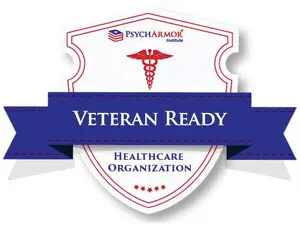Interventions: What You Need to Know
 When you care for someone who has alcohol use disorder (AUD) or substance use disorder (SUD) who isn’t able to find a healing path, it’s often quite devastating for everyone. You want to help, but also know there’s only so much you can do on your own. This is when holding an intervention might be the best option.
When you care for someone who has alcohol use disorder (AUD) or substance use disorder (SUD) who isn’t able to find a healing path, it’s often quite devastating for everyone. You want to help, but also know there’s only so much you can do on your own. This is when holding an intervention might be the best option.
Moving Past the Conflict
Too many times, whenever we try to talk with a friend or loved one about addictive behavior, they’re either in denial or under the influence—neither state bodes well for having an honest conversation about seeking medical help. Inevitably, there’s emotional conflict. This further detracts from the ultimate goal: helping them get critical treatment for addiction, behavioral health disorders, or mental health issues.
Aspects of codependency or separation anxiety might make everything even more difficult, especially in situations without healthy boundaries. Boundaries are essential when you love someone struggling with AUD or SUD, and critical to your—and their—health.
Too many times, we say, “Oh, I don’t like conflict. It makes me uncomfortable.” This is a valid feeling. It’s also important to remember how easy it is to remain stagnant in a toxic environment, simply because what we think we fear most—the conflict—is standing in the way of a much bigger issue that needs resolution.
For challenging conversations about addiction, it’s frequently advised to seek the help of a qualified interventionist.
What Is an Intervention?
An intervention is a structured process of mediation between individuals. A board-certified intervention professional (CIP) guides family members, friends, co-workers, and other people who care about a person—such as a spiritual advisor—as they come together to help that person recognize they have a particular problem and agree to treatment. CIPs typically have a degree in a field related to psychiatry, psychology, social work, and substance abuse counseling.
Usually an intervention consists of up to six people whom the individual depends on, likes, loves and/or trusts. They work together with the CIP as a team to align the facts and create an action plan not only for how the meeting will go, but also what should happen afterward. An intervention doesn’t happen overnight: instead, it’s often planned a few weeks in advance to give everyone time to research their loved one’s condition, talk in-depth about the range of potential outcomes, and rehearse.
According to the Association of Intervention Specialists, the primary role of a CIP is to act as host and moderator of the intervention. Why is this necessary?
- With a professional leading the conversation in a more structured setting, this hopefully keeps your loved one or friend from feeling “ganged up on” or defensive.
- It’s easier for a neutral party to bring up difficult subjects in a measured way, as well as provide resources and options your loved one or friend might be more willing to consider.
- A CIP can help maintain a semblance of calm between everyone, especially when emotions start to run hot.
How else might an interventionist help? The Mayo Clinic notes that “an addiction professional will take into account your loved one’s particular circumstances, suggest the best approach, and help guide you in what type of treatment and follow-up plan is likely to work best.”
It’s important to understand that regardless of how rational the entire intervention process might be, it’s likely your friend or loved one will have objections to the process and what’s being asked of them. They might also be angry, feel betrayed, and hurt, and strike out as a result. Work with your interventionist during rehearsal to prepare for these reactions.
To this point, people often ask about the success rate of interventions, and that’s a valid question. It really depends on the definition of “success”. The primary goal is often for the individual to agree to seek treatment right away. Or, an intervention can simply present some necessary changes that your loved one has to agree to—perhaps boundaries that have become critical to the relationship now—to protect the home and the people involved.
An intervention isn’t a free-for-all to condemn or criticize someone with AUD or SUD. It’s also not a time to present ultimatums or enact control over this individual. A guided intervention creates an essential opportunity for everyone to be heard, and it establishes a launch point for discussing solutions and the need for quality care.
How to Start the Intervention Process
There might be a professional in your community who you’ll learn about through a mental health specialist or a physician. Also reach out to a 12-Step program for resources. Here are some additional possibilities:
Whoever you choose, ask them for details about the intervention process and how it could be beneficial to your situation. Also remember that if you’re not comfortable with this person, it’s unlikely your friend or loved one will be.
Seabrook Can Help
Part of your research before the actual intervention might include evaluating rehabilitation facilities that have the staff and resources to provide whole-person treatment. Speak to a member of our admission team to learn how Seabrook could be the right choice for your loved one to get the quality care they deserve.



